Which drivers have had the most success at Suzuka?
Formula 1 returns to Suzuka for the Japanese Grand Prix on 6 April 2025, but which drivers have had the most success at this iconic circuit before? From the highest number of podiums, pole positions and wins, we have all the answers
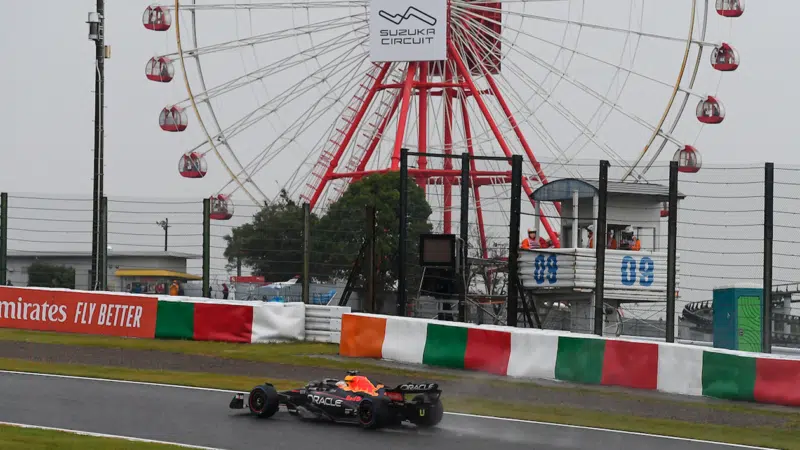
Having hosted 34 grands prix since its debut on the F1 calendar in 1987, the 5.807 km (3.608 mi) Suzuka circuit has welcomed some of the best talent motorsport has to offer.
Set in an amusement park, Suzuka’s figure-of-eight layout is unique in Formula 1. Since first hosting the Japanese Grand Prix, it has been widely recognised as one of the sport’s finest circuits, with drivers like Carlos Sainz “officially” calling it his favourite track.
Originally designed as a test circuit for Honda, which still owns the facility, Suzuka has seen several championship showdowns over the decades including the famous battles between Ayrton Senna and Alain Prost who collided at both the 1989 and 1990 grands prix.
Drivers with the most wins at Suzuka
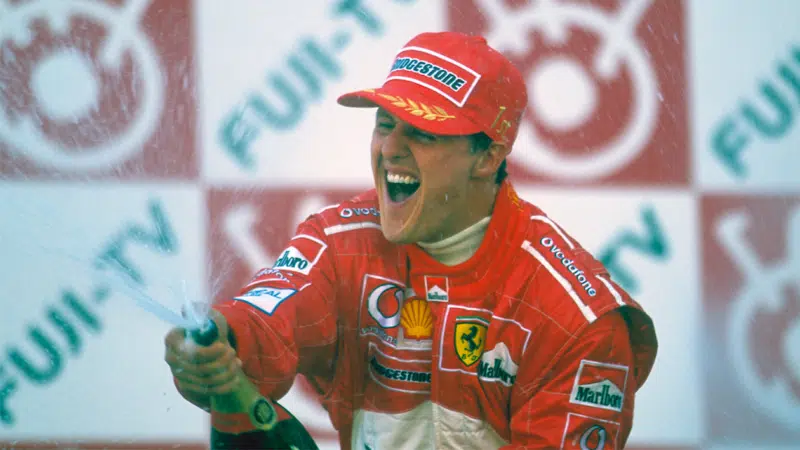
Michael Schumacher celebrates after winning the 2002 Japanese GP
Michael Schumacher has the most wins around the Suzuka circuit with six victories.
His first win came in 1995 with Benetton, leading the pack from pole position on a wet-but-drying circuit. He replicated his first-place success, but this time for Ferrari, in 1997 having started from second on the grid.
A further three wins for Michael Schumacher and Ferrari came over consecutive years across 2000, 2001 and 2002. The first Japanese Grand Prix of the millennium saw Schumacher clinch his first drivers’ championship title with the Scuderia Ferrari team.
Schumacher’s final Japanese race victory was in 2004, when a typhoon heavily disrupted the race weekend and pushed both qualifying and the race onto the Sunday – a first for Formula 1. Nevertheless, Michael Schumacher managed to convert pole into the win, with brother Ralf Schumacher finishing in second to make it a family affair.
Sebastian Vettel and Lewis Hamilton are next on the all-time wins list, with four victories each at the Japanese Grand Prix.
Drivers with the most podiums at Suzuka
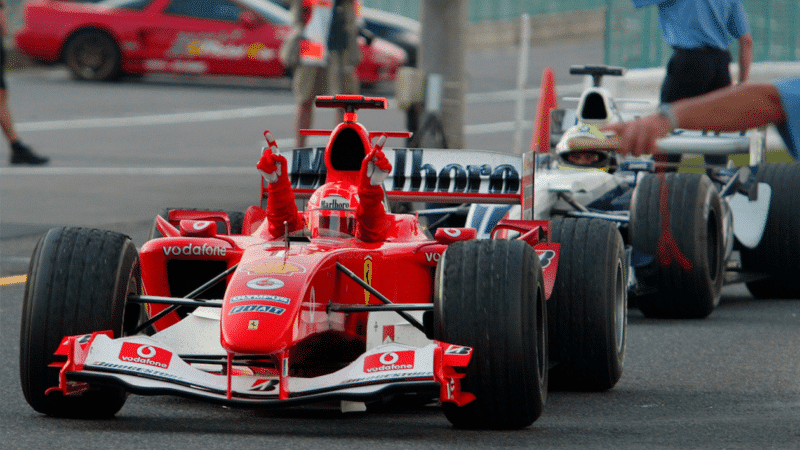
Michael Schumacher and his brother Ralf finished 1-2 at the 2004 Japanese GP
Michael Schumacher has the most podiums around the Suzuka circuit, with nine to his name.
It’s evident that Suzuka and its unique charm lent itself well to Schumacher, with the seven-time World Champion picking up nine podiums at the venue. His first top three finish came in 1994, before winning the event for the first time the following year. Back to back podiums came in 1996 and 1997, with more silverware earned each year from 1999 to 2002. His final podium result in 2004 also marked his last win at this special circuit.
Sebastian Vettel has eight podiums at Suzuka, with Lewis Hamilton just behind on seven.
Drivers with the most pole positions at Suzuka
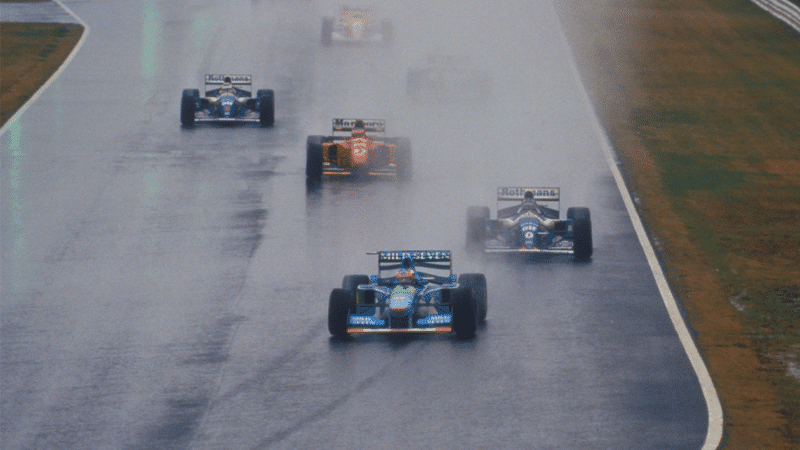
Michael Schumacher leads the pack at a very wet Suzuka in 1994
Michael Schumacher has the most pole positions around Suzuka, having started from the first grid spot on eight occasions.
Two of these pole positions came in 1994 and 1995 when he raced for Benetton, with the other six happening during his time with Ferrari over the following years; 1998, 1999, 2000, 2001, 2002 and 2004.
Sebastian Vettel is second on the list of most pole positions in Suzuka, with five. Ayrton Senna, Nico Rosberg and Max Verstappen all have three poles at the Japanese circuit.
Which drivers have won a championship at Suzuka?
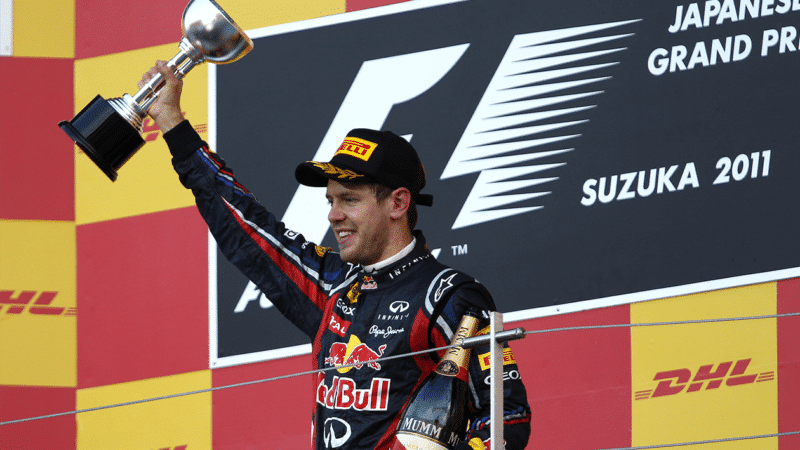
Sebastian Vettel secured his second drivers’ championship in 2011 at Suzuka
The F1 World Drivers’ Championship has been decided 12 times at the Japanese Grand Prix.
Nelson Piquet, Damon Hill, Mika Hakkinen, Alain Prost, Ayrton Senna, Sebastian Vettel and Max Verstappen have all secured world titles here when it was hosted towards the end of the season.
The most recent drivers’ title decided in Suzuka was Max Verstappen for Red Bull Racing in 2022. This was Verstappen’s second championship crown, but was awarded in rather confusing circumstances after a misunderstanding on the points allocation after a rain-affected race.
Before that Vettel also won his second drivers’ title here in 2011. Michael Schumacher won two championships here, once in 2000 when he clinched Ferrari’s first drivers’ crown in 21 years and again in 2003.
The Flying Finn, Mika Häkkinen, won both his world drivers’ championships here, across 1998 and 1999, with Damon Hill taking his only title at Suzuka in 1996.
Ayrton Senna and Alain Prost shared plenty of controversy at the Japanese Grands Prix over the years, with crashes ending both the 1989 and 1990 championships.
For their first coming-together, Senna lunged down the inside of his McLaren team-mate on Lap 47 and they made contact. Prost exited his car thinking it was all over, but Senna stayed put and got a push start from nearby marshals. After returning to the pits, Senna got a new nose cone and eventually won the race, but was later disqualified for having assistance when rejoining the race making Prost the champion.
The following year, in 1990, Senna and Prost crashed again but this time it was the Brazilian who took the crown. Ayrton Senna won all three of his drivers’ titles at Suzuka – 1988, 1990 and 1991.
Fellow Brazilian compatriot Nelson Piquet also sealed his third and final drivers’ championship at the 1987 Japanese Grand Prix.
